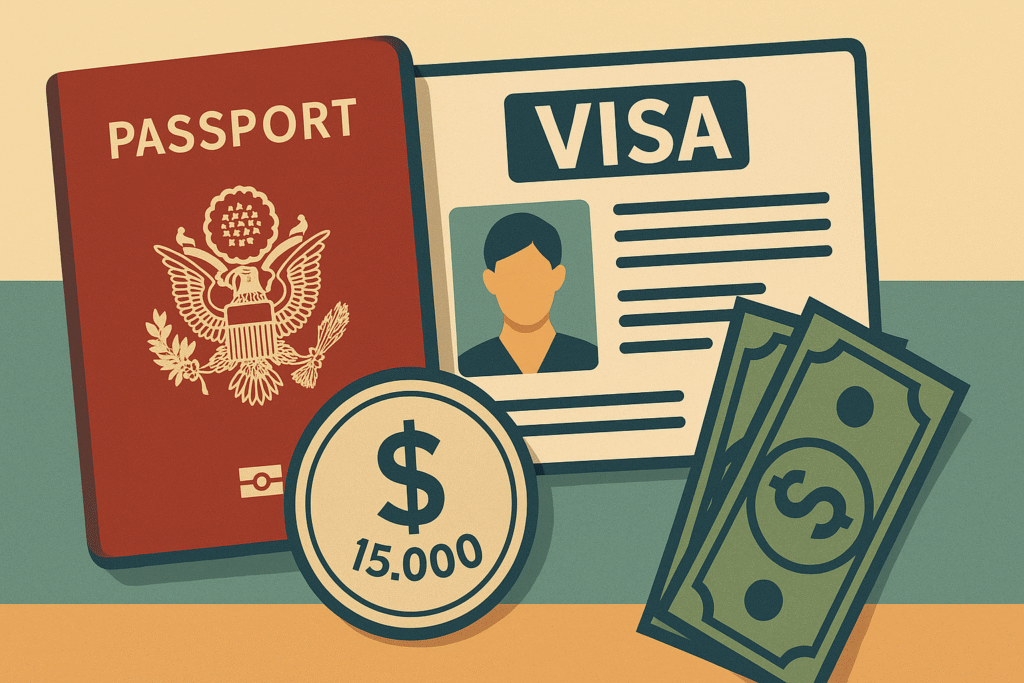The United States government has announced a new visa policy that will require certain tourist and business visa applicants to post a bond of up to $15,000, as part of efforts to curb visa overstays. The Department of State confirmed the policy on Monday, outlining a year-long pilot programme set to begin on August 20.
This initiative targets applicants from countries with high visa overstay rates or inadequate screening and vetting systems, as well as countries offering citizenship-by-investment schemes without residency requirements. The measure reflects a broader tightening of immigration controls under President Donald Trump’s administration, and follows an executive order issued in January titled “Protecting the American People Against Invasion.”
Bond Requirements and Implementation
According to the State Department, consular officers will have discretion to impose bond amounts of $5,000, $10,000, or $15,000, with a standard expectation of $10,000 in most cases. The bond is intended to act as a financial guarantee that visitors will comply with the terms of their visa and depart the U.S. before their authorized stay expires.
While the specific countries affected will be listed on the State Department’s website, the list may be updated throughout the pilot phase based on overstay data and national security assessments.
The State Department characterized the programme as a “tool of diplomacy,” aimed at encouraging foreign governments to reduce overstay rates among their citizens. “The bond system is intended to create a financial incentive for compliance and encourage bilateral cooperation,” a spokesperson said.
Policy Context and Background
This initiative revives and expands upon a 2020 six-month visa bond pilot introduced during Trump’s first term, which was ultimately shelved due to the collapse of international travel during the COVID-19 pandemic.
It also builds on recent restrictive immigration policies. In June, the administration imposed entry bans on citizens from 12 countries, drawing comparisons to Trump’s earlier “Muslim ban.”
The new visa bond policy stems from a directive under the Immigration and Nationality Act. The Secretary of the Treasury, working alongside the Departments of State and Homeland Security, is tasked with establishing a system to administer and enforce bond requirements.
Diplomatic and Legal Implications
While described as a security and compliance measure, the bond programme could carry diplomatic implications, particularly for countries with high numbers of visa applicants. It places new financial and administrative burdens on travelers, especially from developing nations.
Critics argue that the move risks deepening inequalities in global mobility and may be seen as penalizing entire nationalities for the actions of a minority who overstay their visas. Supporters, however, see it as a necessary step to protect U.S. borders and hold foreign governments accountable.
As the pilot unfolds, the U.S. will monitor its effectiveness and gather data to assess whether the policy could be expanded or modified further in future immigration strategies.



